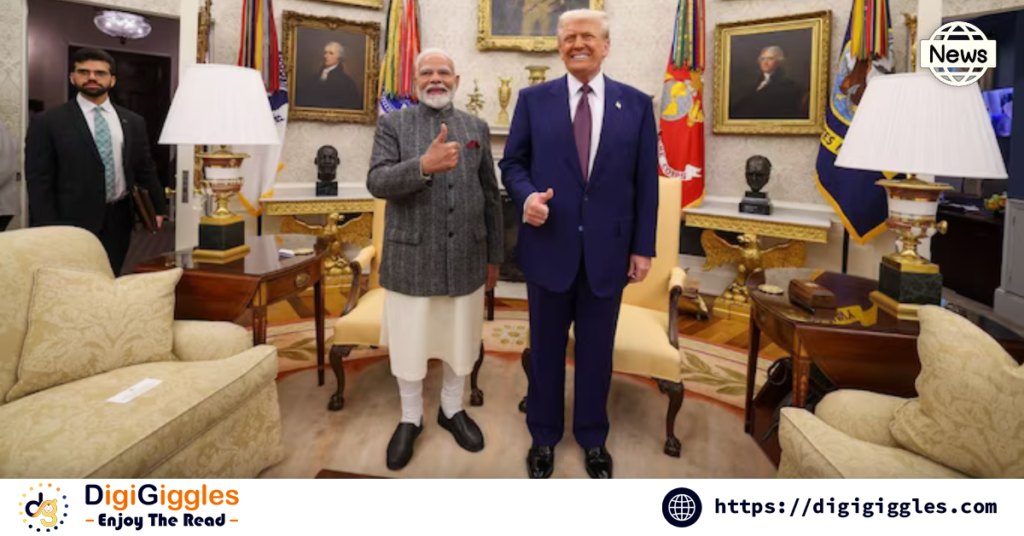
In a significant diplomatic development, Prime Minister Narendra Modi and former U.S. President Donald Trump recently engaged in crucial discussions, covering key topics such as the extradition of a 26/11 terror plotter, potential deals involving F-35 fighter jets, and strengthening Indo-U.S. trade relations. The high-stakes meeting reflected the growing strategic partnership between the two nations while addressing mutual concerns over security, defense, and commerce.
Extradition of 26/11 Plotter: A Step Toward Justice
One of the most critical issues on the table was the extradition of an alleged mastermind behind the 26/11 Mumbai terror attacks. The Indian government has long sought justice for the victims of the deadly attacks, and the U.S. has now indicated a willingness to facilitate the extradition process.
A senior official familiar with the discussion revealed that India provided fresh evidence and legal documentation to support the extradition request. This development is seen as a major breakthrough in counterterrorism cooperation between the two nations. If executed, the extradition would mark a significant diplomatic victory for India in its fight against terrorism and reinforce the commitment of both countries to tackling global security threats together.
Defense Ties: F-35 Fighter Jet Deal in Focus
India’s growing defense ties with the U.S. were another major highlight of the meeting. Sources confirmed that discussions included India’s potential procurement of F-35 stealth fighter jets, which are among the most advanced military aircraft in the world.
While India has been steadily enhancing its defense capabilities, the acquisition of F-35s could be a game-changer in strengthening its air combat capabilities. Defense analysts believe that such a deal would not only deepen military cooperation between the two countries but also serve as a counterbalance to rising security challenges in the Indo-Pacific region.
If finalized, this could be one of the most significant defense procurements in recent years, further solidifying India’s status as a key strategic partner of the U.S.
Trade and Economic Cooperation: Strengthening Bilateral Ties
On the economic front, Modi and Trump discussed ways to enhance trade relations between the two countries. India and the U.S. have been key trading partners, and the meeting aimed to address some outstanding issues, including tariffs and market access.
Both leaders emphasized the need for a balanced and mutually beneficial trade agreement. With India being one of the fastest-growing economies, the U.S. sees immense potential in expanding business ties, particularly in the technology, defense, and energy sectors.
Additionally, talks revolved around resolving long-pending trade disputes, ensuring smoother business operations for companies on both sides, and creating a framework for increased investments in key sectors.
Conclusion: Strengthening the Strategic Partnership
The Modi-Trump meeting underscored the depth of Indo-U.S. relations and their shared commitment to addressing global challenges. From counterterrorism efforts and defense collaborations to trade negotiations, the discussions paved the way for stronger bilateral ties.
While the final outcomes of the F-35 deal and the trade agreement remain to be seen, the meeting reinforced the importance of India-U.S. cooperation on multiple fronts. With both nations working towards shared economic and security goals, this partnership is set to play a crucial role in shaping the global geopolitical landscape in the years to come.